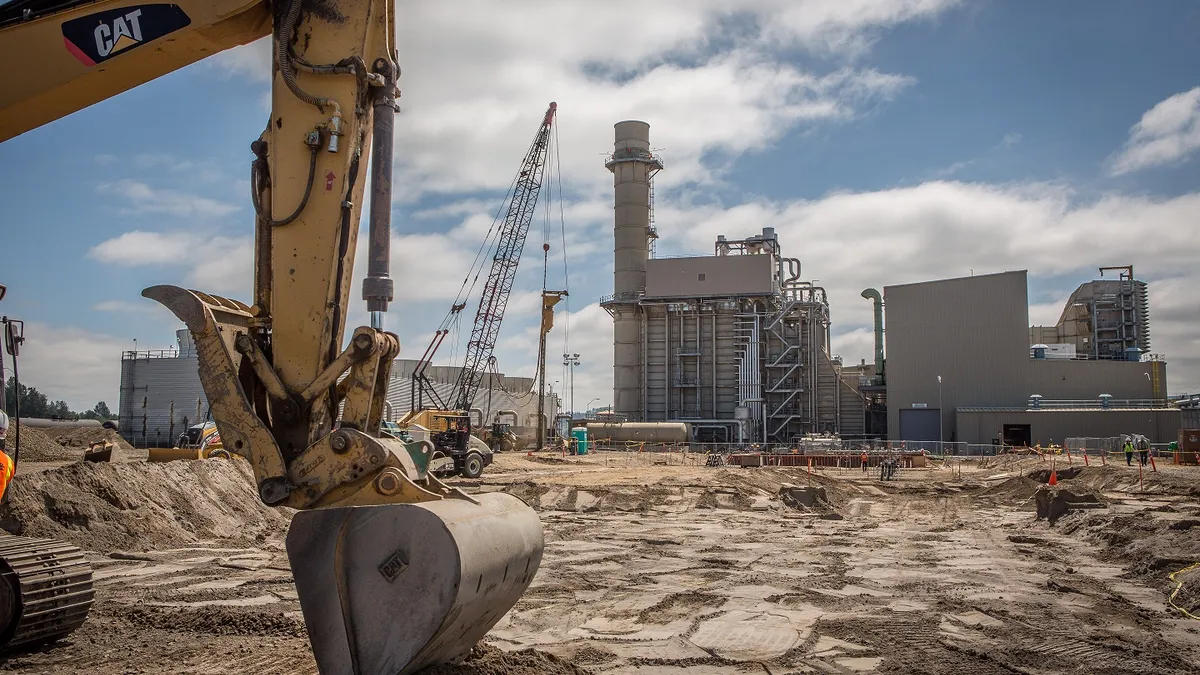This feature is a part of "The Dotted Line" series, which takes an in-depth look at the complex legal landscape of the construction industry. To view the entire series, click here.
Construction contracts greatly determine how a project is going to play out, whether the agreements are between owners and general contractors or subcontractors and general contractors. They can be fair, one-sided or even downright oppressive, depending on the terms. And once it is signed, that’s it, which is why it’s important to have an attorney look over it prior to final execution.
There are a number of reasons why seeking a legal review of a construction contract is a good idea, so why do some contractors skip this important step?
“They are penny wise and pound foolish,” said attorney Michelle Schaap of Chiesa Shahinian & Giantomasi. “They think that attorneys are a necessary evil, and you only call upon them when you absolutely need them.”
This comes from the naiveté, she said, of someone who has never had a dust-up over a contract agreement and, therefore, doesn’t see the value in consulting an attorney. Or, it could be that the executives in charge of the company’s legal matters had a bad experience with a lawyer, and prefer to keep contract work in house.
There are other reasons, too. “I think, by and large, it’s to save money,” said John Patrick Curran, partner at Sive, Paget & Riesel in New York. “Also, in some cases, they’re trying to get it done fast, and there may be a perception that attorneys add a layer of complexity to it that some may think is unnecessary.”
Whether a construction firm consults a lawyer can have to do with the level of comfort the parties to the contract have with each other, said Andrew Richards, co-managing partner at Kaufman, Dolowich & Voluck. For example, many general contractors use the same subcontractors over and over, and the subcontractors don’t want to ruin a good relationship.
“The subcontractors won’t bite the hands that feed them,” Richards said. However, he added that things change when the job is big — both in dollar amount and scope — and there is more at stake. In those circumstances, he noted, contractors are more willing to negotiate the terms and seek out legal advice.
But contractors should consider using an attorney to review their contracts on any size job, according to attorneys interviewed by Construction Dive. Here are the main reasons why.
1. Contract forms and content change over time. “No form stays exactly the same forever,” Curran said. Some companies, he said, use the same contracts for years, and some clauses cut off in mid-sentence as a result of adding and deleting a mishmash of photocopied sections from time to time. Needless to say, the lawyer said, construction companies need their contracts to reflect the current laws, and an attorney with experience in construction can make that happen.
Likewise, Curran said it’s critical that contractors use a lawyer with construction-specific experience. “It’s not the type of law you can dabble in,” he said. There are too many nuances and unique issues in construction, he said, and no such thing as doing “just a little bit of it.”
2. Contract reviews reduce risk exposure. Some of the major contract provisions that can bring a construction company to its knees if not addressed by an attorney prior to signing are:
Incorporations by reference. A contractor might hand some unwary sub, Schaap said, a simple contract form that looks fairly harmless. What the sub doesn’t see, she said, is the one line pulling in by reference the prime contract. “Little did they realize what they signed up for,” she said.
Liquidated damages for delay. Some contracts, Curran said, will dump all the responsibility for delays in the subcontractor’s lap, even if the sub is not at fault. “You don’t typically see conditions like that, but you'll get them from companies that do general law, and what they're going to try to do is push as much responsibility onto the other party as they can.”
Pay when paid clauses.Generally speaking, Schaap said, pay when paid clauses are unenforceable unless written in very specific terms. These provisions state that the general contractor does not have to pay the subcontractor unless it secures payment from the owner first. Subcontractors who don’t know there way around the issues, she said, could not realize they have remedies like stopping work until payment is made.
There’s really no contract or subcontract that can’t benefit from a legal once-over, Curran said. “What they put in the contract might be a landmine,” he said. “When it’s too late, and they come to me, I’ll say, ‘Why did you agree to such a thing?’”
3. Contract reviews provide contractors options. Contractors need the decision about how much risk they’re willing to accept on a job to be an educated one, Schaap said. “It’s looking at an agreement and saying, ‘I’m going to sell my soul, but here’s where I draw the line. You’re not paying me enough to assume the risk.’”
But there’s really no way for contractors to know what they’re getting into without a review from a lawyer. Richards said it doesn’t even have to be a costly examination of every clause — with a fine-tooth comb — in order to avoid future legal battles. He said he’s had clients who just want a brief review to identify “the big stuff” that can hurt them. “One bad job can kill you,” he noted.
Schaap said she has clients who have contract specialists on staff that she has trained to look for “big picture issues.” The training allows the firm to save time and money by not having to run to her with every detail.
4. Courts want accurate, written agreements. "The days of the handshake deal are dead,” Richards said. “Courts care what the contract says.” A subcontractor, for example, could be doing extra work at the verbal request of the contractor, but the contract might require written authorization for all change orders — before the work begins. Richards said if the matter ends up in court, the subcontractor will likely hear from the judge, “What does the contract say?’”
A thorough review by an attorney, he said, leaves nothing to interpretation.














